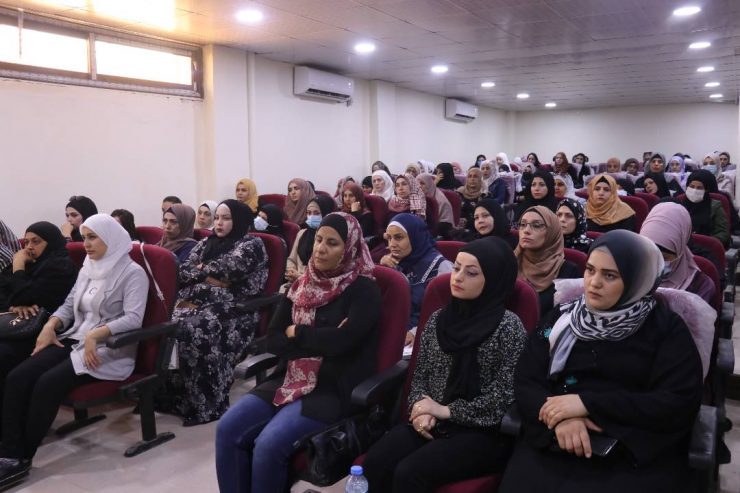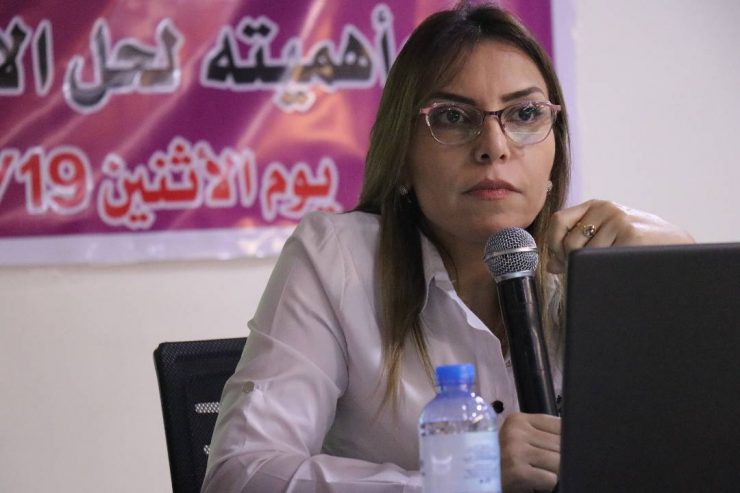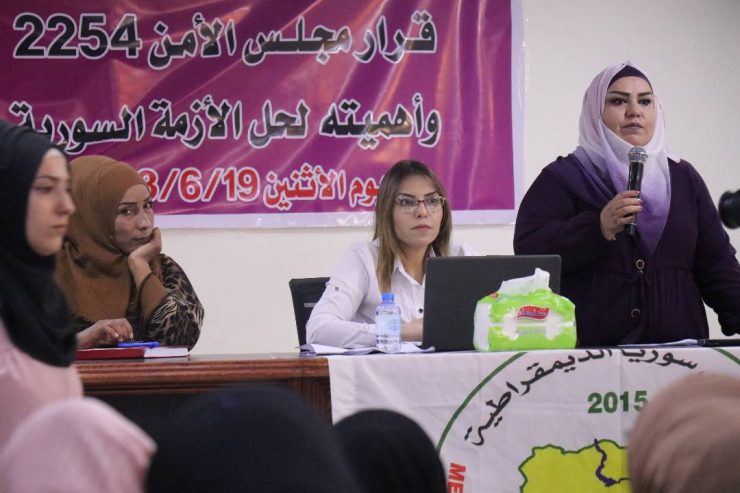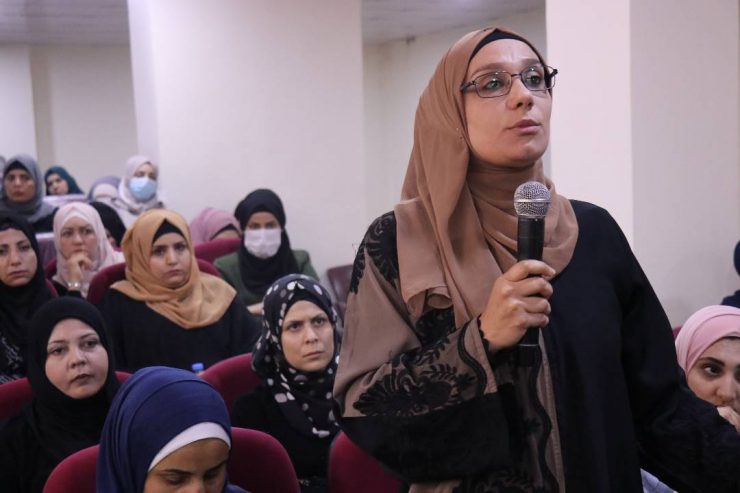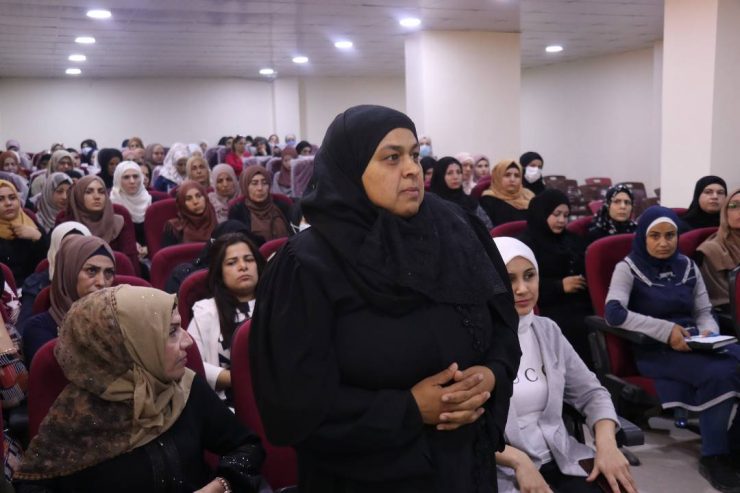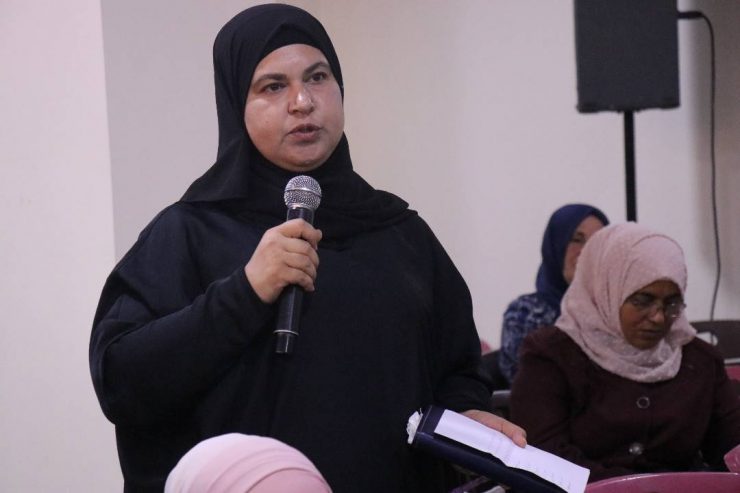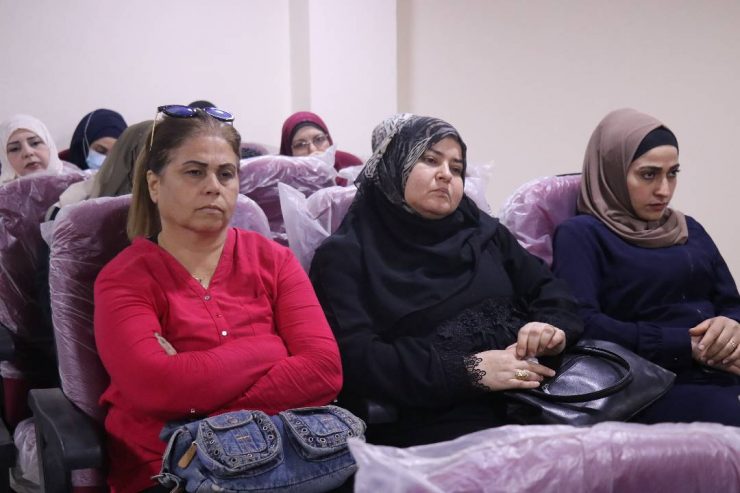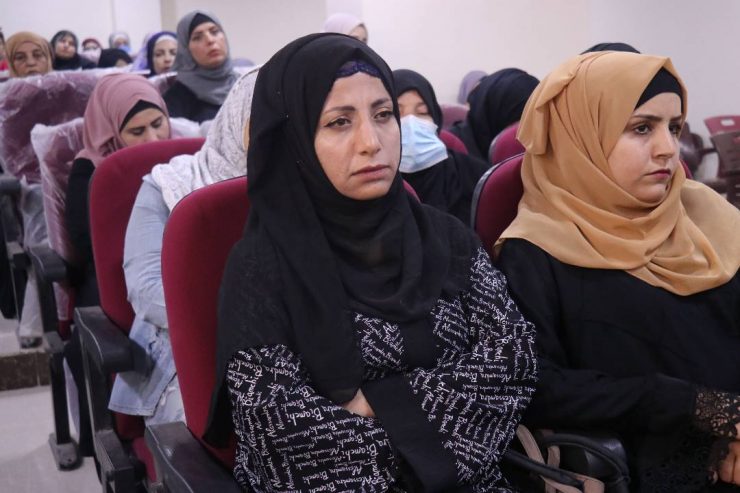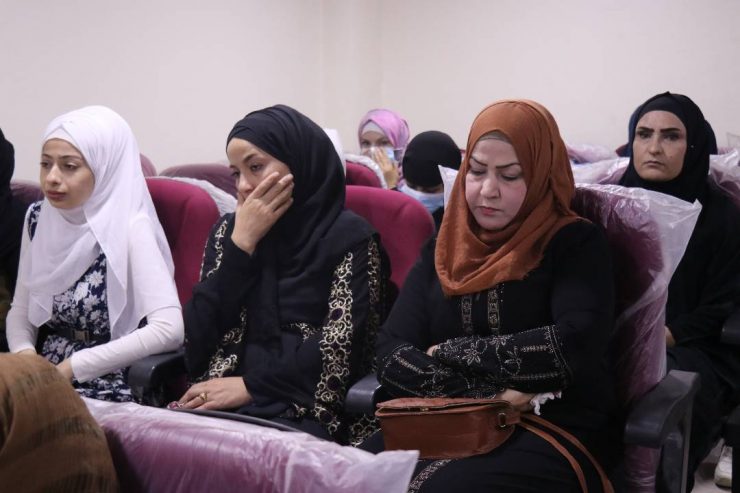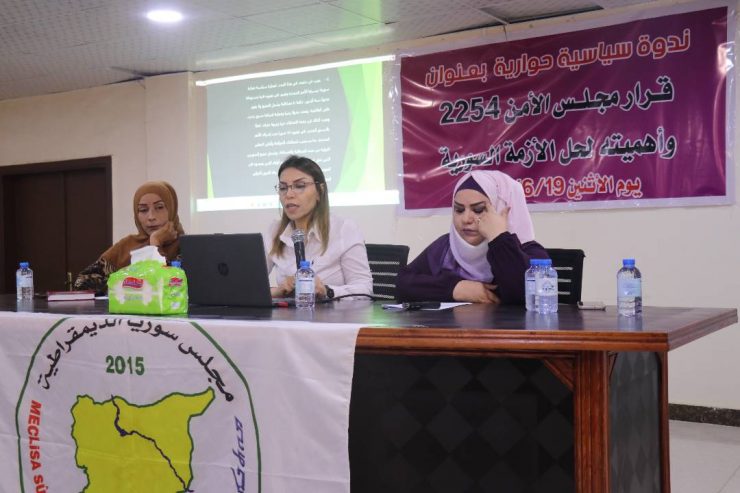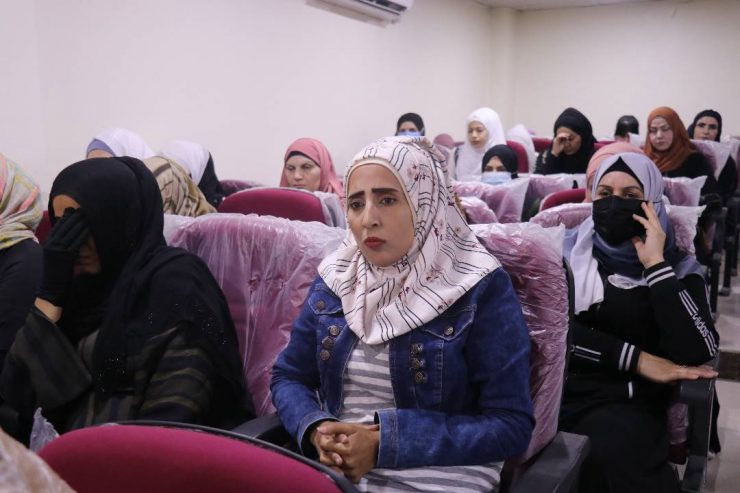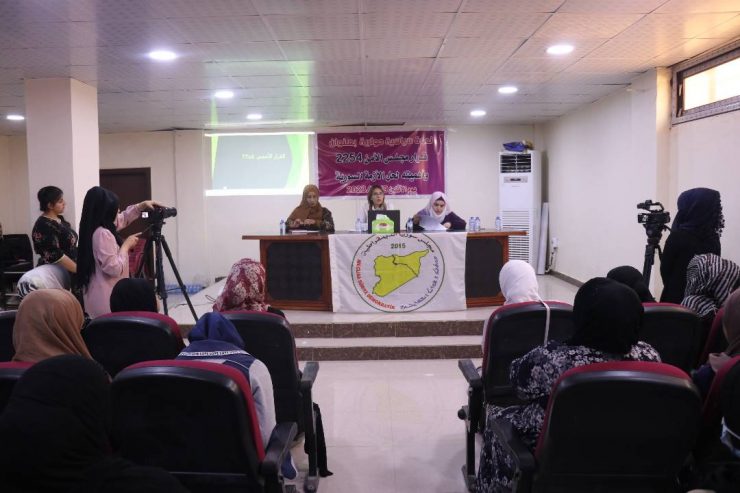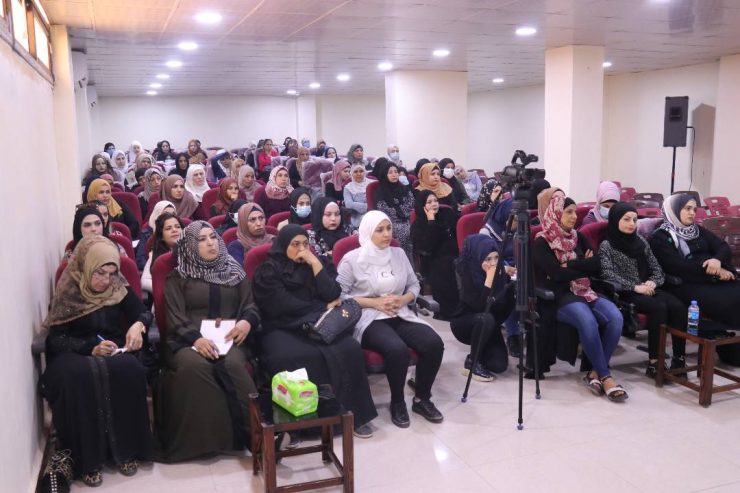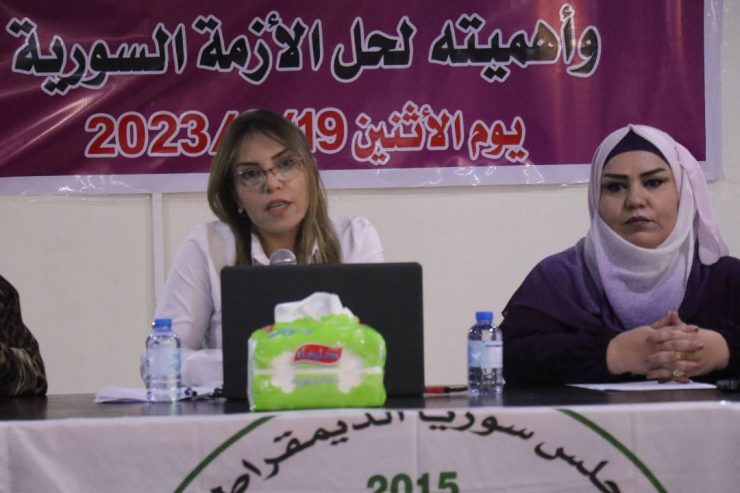With the participation of women from Al-Tabaqa Women’s Bureau, a dialogue seminar was held at the Women’s Bureau of the Syrian Democratic Council to highlight the importance of UN Resolution 2254 in resolving the Syrian crisis for the Syrian people. The dialogue seminar took place on Monday, and in Al-Tabqa on the banks of the Euphrates River.
The seminar was attended by a large group of women and feminist figures from various social segments, organizations, institutions, civil councils, as well as women civil activists and representatives from political parties.
During the seminar, Thubiyah Al-Nasser, the administrator of the Women’s Bureau of the Syrian Democratic Council, presented the international circumstances in which UN Resolution 2254 was issued, the consensus reached on it, and its adoption based on the Geneva and Vienna statements, emphasizing its importance for the Syrians.
When Al-Nasser mentioned the sixteenth clauses of the Resolution, she would praise the significance of the fourth clause of the resolution, which supports “a Syrian-led political process facilitated by the United Nations and includes all Syrians, including those in the diaspora”.
Sawsan Al-Hussein, a member of a Conflict Resolution Committee in one of the international organizations operating in the region, considered the resolution somewhat fair and she emphasized its importance. Al-Hussein raised questions about its implementation amidst the transitional division that Syria is going through, and why the neighboring countries did not adhere to it. She also pointed out the fifth clause of the Resolution.
Turkiyah Al-Hammadah, a member of the Internal Affairs Committee, described the Resolution as “the key to the resolution in Syria,” adding that the reason for its lack of implementation is the presence of conflicting regional powers in Syria.
On the other hand, Dureyah Al-Ghadban, the spokeswoman for the Defense Bureau of the Autonomous Administration, held the authorities in Damascus fully responsible for the lack of implementation of this Resolution, stating that they have not taken concrete steps to implement it. Al-Ghadban clarified that this resolution complies with the international law and emphasizes the protection of civilians, the delivery of humanitarian aid, and cooperation in combating terrorist organizations.
Regarding women’s empowerment, Majida Al-Hussein, the Co-chairwoman of the City Council, emphasized that the 21st century will have a role for women in the world of politics, as it is witnessed today in this region. Regarding this Resolution, Al-Hussein called on all Syrian women to activate this Resolution.
On another note, Nadia Al-Muhammad, a member of the Future Syria Party branch in Al-Tabaqa city, addressed the Autonomous Administration initiative that aligns with Resolution 2254.
Wiam Al-Jassem, a teacher, stated that Syrian women have contributed a lot and still continue to do so, but they need some efforts to become active and overcome obstacles. Al-Jassem called for similar mass meetings.
At the end of the seminar, the organizers thanked the participating women, emphasizing the importance of political empowerment for women and their role as pioneers in building Syria.


